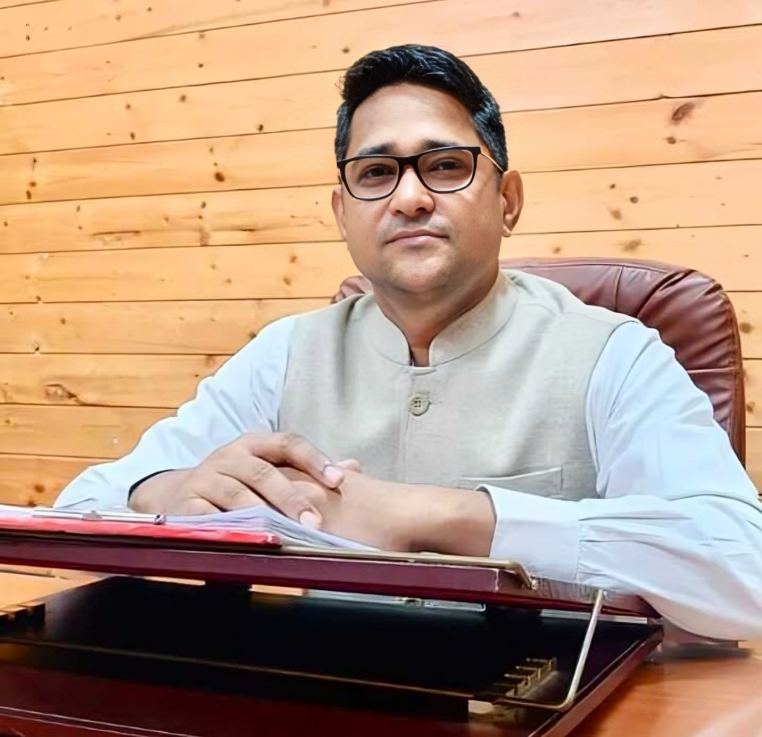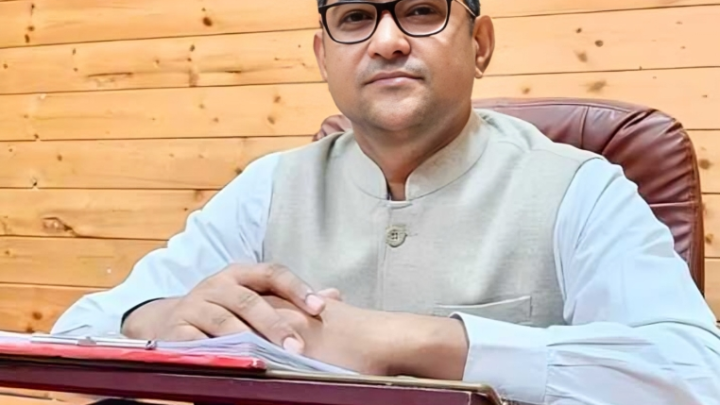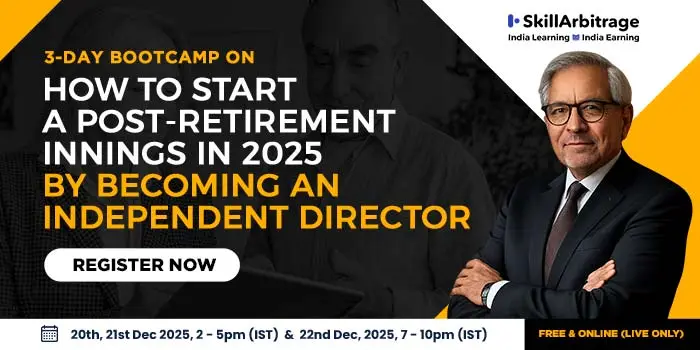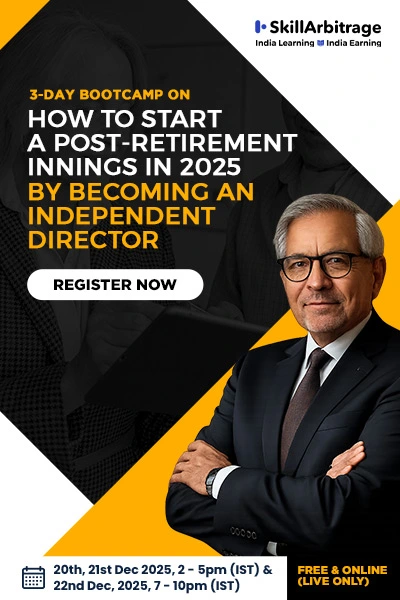Interviews
2757
1
0
Balancing Defense and Prosecution: A Legal Journey Through India’s High-Stakes Criminal Cases. – Akhand Pratap Singh, Special Public Prosecutor for Delhi Police.
This interview was taken by SuperLawyer Team
Posted on May 30, 2025
This interview has been published by Anshi Mudgal and The SuperLawyer Team

Sir we’ll start with a very prominent question of why and when you decided to do law after UPSC examinations, and what were the decisive moments that may have led you to choose law instead of what you were doing already. What ways do you think that all that experience that you garnered over the years influenced your approach towards the legal profession?
The reason for me, for doing law after I was not able to qualify for UPSC, the main motive for even preparation for the UPSC was to serve the nation or serve the people of the country, and law is another field where in other ways we are able to serve the society, serve the people, either appearing on behalf of the defense side or on behalf of the prosecution side.
Basically, we’re there to help the society. If any person is involved in any legal trouble, they approach the lawyer. In that way, we are helping the people. The purpose and the objective for doing law was only for to help the people at the grassroot level.
“Sir, how did you cope mentally when your UPSC plans didn’t work out, and what motivated you to continue serving society? Could you also share some key challenges and successes that made a real impact on both the people and your own life?”
I completed my law in the year 2011 and then thereafter from 2011 to 2021, I was mainly a defense counsel on the criminal side of the bar. I was defending the accused persons in cases of Delhi Police, CBI and ED. So, in that way while I was representing the people I also came to know the challenges that the prosecution faces, what type of legal requirements are there to even build up for fool proof cases is the first one.
So, in that context, the first thing that I came to understand that the nuances of the criminal practice are very demanding and it requires one to go into the nitty-gritties and to get into the details on each and every aspect of the case. The second thing that I have experienced so far is that people are going through so much pain, so what I was trying to do so far was to actually help those people in a proper manner to the best of my capability, and that’s how the journey started first.
Since 2011 to 2015, I was an associate with my Senior Rajesh Anand and I have learned lot from him about the nuances of the criminal law.
2015 onwards, I started as an independent practitioner and I will say my first big case as an independent lawyer was the Coal Scam case wherein, I represented one of the Sitting Director, Mines, Jharkhand Government. I was also one of the youngest lawyers amongst those who were representing the other co-accused in the same case and that case was the first in all of the coal scam cases that came to be registered so forth. So that’s how my journey as an independent lawyer started.
Prior to that as well when I was working with my Senior Rajesh Anand, I got the opportunity to work in some very good cases, one of those cases was the TWG scam, Commonwealth game scam. So that was my first case, I will say, where I got an opportunity to represent the accused in which the CBI was the prosecuting agency and I would say the bulkiest cases in terms of the volumes of the documents, in terms of the volumes of the accused and in terms of the magnitude of the case.
So that’s how my journey started, and even before that, with my Senior Rajesh Rana, I also got an opportunity to learn from him the nuances of the cross-examination, which I will say is the root thing or the most important thing for any criminal lawyer to understand. The problem is that sometimes there are people who don’t want to get the trial experience.
However, in my individual opinion, cross examination is the most important aspect for any criminal lawyer, and that is the evidence on which the superior courts whether it be magistrate trial, session court trial, the Honourable High court or the Honourable Supreme court finally decides at the stage of the appeal, either filed by the accused person by the state. Therefore, the most important thing for the purpose of any criminal trial is the recording of the evidence, either by the prosecution or the cross-examination. So, for a defense counsel to learn the art of the cross-examination is the most important thing, and for that, I give my all thanks my Senior Mr. Rajesh Anand.
There was a time when I was doing most of the MCOCA case for the defence side that being from 2015 to 2021.
Thereafter, I got an opportunity to represent the Delhi police in one of the case, State Vs. Sukesh Chadrashekhar, where the accused persons were booked under MCOCA and I was approached by the Delhi Police to represent them as a Special Public Prosecutor.
So that’s how my journey started, being a special public prosecutor to represent the Delhi Police. Thereafter, I represented Delhi Police in a number of cases as a special public prosecutor, the Parliament security breach case being another one. I am also representing the Delhi Police in Norco terrorism cases. Primarily I’m representing Delhi police in cases where MCOCA has been involved against a number of the organized crimes syndicate.
I’m also representing the Delhi Police in another peculiar case with the Khalistan front angle, where local terrorist and local gangster along with some of the gangsters sitting abroad who have formed a nexus and were indulged in terrorist activities within the territory of India.
So effectively I’m representing Delhi Police in multiple cases as a Special Public Prosecutor and I’m trying to give my level best.
Sir, given the intense nature of the cases you’ve handled, how have they impacted your understanding of human psychology, and how do you protect your own mental and moral well-being while staying professionally involved?
The problem with being an advocate is the work-life balance, and I totally agree with that. There is no hesitation in accepting that. I totally agree with the fact that we as lawyers are able to devote very less time to our family from what is required. Every profession has its own demands. Every profession has its own pros and cons, but once I chose this field, my priority has always been the work along with the life aspects.
And yes, at times one thing takes a toll on the another, but it shouldn’t be so on the cost of another thing. Secondly thing regarding maintaining, yes, we hardly get time to sleep. I will totally agree with that, but yes, we need to be physically and mentally fit. And the most important thing is the presence of mind, particularly in the court room, because sometimes a query comes from the honourable court on a specific aspect and if we are not able to keep ourself physically and mentally fit, there can be a situation where we will not be able to respond properly, and the ability to respond to such queries comes from the aspect that how much you are prepared with your file.
My understanding about the criminal law is that every time when you go through the file, you learn a new thing. Because see, there is always everything in the file. I will say that is, in my opinion, either you appear on behalf of the state or either you appear for the defense, file is everything, and reading the file is the most important thing.
The number of the times you read the file, your orientation or your perspective or you’re understanding about the file changes at instances because maybe there can be an occasion at times you miss certain very important things on the facts of the case. I was doing a drug-trap case, anti-corruption ban, Delhi police case and I was representing one of the accused who was caught red handed, there was also the recording of the entire trap, so for the first time when I read the file, I was unable to gather as to how or in what manner I’m going to represent the accused because being a criminal lawyer we also need to strategize our cases.
But yes, after going through the file again and again and again and again, finally I got some legal aspect on the ground of which finally I got the video of the trap inadmissible before the honourable court in terms of the evidence.
I will say my understanding about the reading of the file, my understanding about how to approach the case, and in my opinion, that’s how I tackle the file can be one, but I am also open to my associates because, I need to be receptive with their opinion as well because I am not the person who can say that knows everything.
Maybe my associate who is less experienced than me in terms of the years in practice, can also have a brilliant idea. He can have a different understanding about the same subject matter in a, which is more helpful to me. So, in that way, we basically go through the file, all the associates, to whom the specific files are marked are open to share their own opinions, ideas, or their understanding about the file. I am ready to share my opinion, ideas with them as well.
Thereafter, finally we come to the conclusion or strategize how to approach any of the cases. So that’s how I approach any of the case. The same approach is applicable even when I am appearing as a special public prosecutor in any of the cases.
Any case is dependent upon two things. The first thing is that the fact, facts cannot be changed. But the law is not dependent upon the fact, however the fact is dependent upon the law. Therefore, we have to approach or search for an appropriate law on that subject matter and as and when the situation arises.
In 2015, you represented an accused in a high-profile coal scam case as the youngest lawyer on record. How did you strategize to stand out among senior advocates, and what key lessons or experiences did you take away from securing your client’s acquittal?
In 2015, I was representing a client in the name of Vipin Bihari, who happened to be at that point of time, the sitting Director of mines and mineral department, government of Jharkhand, so in that case, I was one of the youngest lawyers of all the counsels who were representing the different accused, and that case was basically registered by the CBI.
So, for me, the best way to understand the case was from the perspective of the client and I would say that I was quite blessed that my client was also very, very keen to share the nuances of his case.
Since he was also a learned person. He has also worked in various departments on behalf of the government of Jharkhand and for the entire 2 years – 2015-2017, I worked almost on every Sunday also. I can say that, because my client used to come from Ranchi to Delhi, so he used to come on Saturday. Then on the entire Sunday, we used to basically discuss about the case and prepare about the strategies and I will also say that the co-operation from the honourable court was also immense. I’m very thankful to the honourable court and also to the presiding officer at that point of time for giving me the confidence to represent such type of case. And I’m quite thankful to you and my way to approach the case was, again, read the file repeatedly because everything is in the file, either for the prosecution side or from the defence side.
We need to have a command on our file. There is no other way to approaching any file, and if you have a command over your file, you are always one step ahead with your opposition. That is my way to approach the case.
Sir, it’s eye-opening to hear how deeply you engage with case files something many overlook today. You’ve handled landmark cases like the Unnao rape, Commonwealth scam, and the parliamentary breach. How did you manage such high-profile and sensitive matters simultaneously? Specifically, for the Unnao case, what key factors guided your approach? Could you share an example of a major challenge you faced while maintaining confidentiality and ensuring justice?
When I started appearing on the Unnao Case, the biggest challenge facing was the time management, first thing. The reason for that is that the Honourable Supreme Court had basically passed an order to complete the trial within a timebound manner. So what we were basically doing, when we were there in the court, cross-examining the witness at some time, even at 7 to 8:00 AM till the night also. That case started from September, 2019, and finally the judgment came in the month of March, 2020.
The Unno rape incident follows 5 cases. Just for your knowledge. One case is the rape case. One case is the death of the father of the prosecutrix. One case is where the police personnel were charge sheeted for falsely implicating the father of the prosecutrix. Another case is the gang rape case, which was the fourth case. And the fifth case was regarding one accident case, which basically triggered the transfer of all of the cases, bunch of the cases from the state of UP to the city of Delhi. So, I was representing in the murder of the father of the prosecutrix case.
And in that case, I was representing the Investigating Officer of that case who was basically charge sheeted by the CBI for falsely implicating the father of the prosecutor. I will say it was one of the most challenging cases of my career being a defence counsel, where on a daily basis. In the evening, at around 7 or 8:00 PM we would come to know that these are the two or three witnesses who were summoned for the next day. So again, from the Tis hazari court, we have to rush to our office. At that point of time, my office was in a defence colony, so we had to rush to my office and thereafter, again, entire midnight burning of the oil.
Because only in the late evening we would come to know that these are the three witnesses, who have been called for the next date for the purpose of the deposition of the witnesses. And within that period of time, we had to prepare. We had to go through the statements recorded under 161 CRPC or 164 CRPC, and further prepare for the purpose of the cross-examination.
But yes, that gave me a very good sense of the satisfaction, though there was a conviction against my client, I will also say that, but it was one of the most challenging and it also helped me to learn how to tackle the situation where there is extreme urgency, where there is extreme level of involvement required.
I can say I got a lot of help at that point of time, from all of my associates, from my family members also to that extent I’m thankful to all.
Sir, you mentioned how deeply these cases impact an attorney’s psyche. Your shift from defense to becoming a Special Public Prosecutor for Delhi Police was a major turning point. What inspired this transition, and how did you adapt to the change in role? How different was your approach when handling cases from the prosecution side? What was going through your mind during this shift, especially after years of defending clients?
I’ll say that was the biggest challenge for me when I moved from the defence side to the prosecution side, because all of a sudden, I was defending a client on a legal aspect. Thereafter I had to oppose the same purpose, but standing on a different side on the same legal aspect, so that was a very good challenge for me.
But what attracted me or what I will say pushed me that there is a, in my opinion, a very good sense of satisfaction. When you represent the state and the state is imposing a faith on you, and the duty and the responsibility on your shoulder is increased by many more, because you are there to basically represent a state in those cases where the government has imposed faith on you, despite being the availability of the regular prosecutor, so my job was to work much more harder and to go represent the state to the best of my capability.
Being a special public prosecutor, there is only a single person who represents the state, but in the same case, there are 10 accused, 11 accused, 5 accused, and for every accused, there are different counsels. So, I had to basically, legally counter all the multiple counsels for those accused persons just for example, there is a case, my first case of Sukesh Chandrashekhar, presently, in which there are 22 accused, so 22 accused are represented by the different counsels.
So, at the same time I have to, counter those 22 legal opinions or legal arguments, which are advanced by those people in the court. So that requires more preparation, more going into the depth of the issue.
Sir, you transitioned from conventional criminal cases to complex ones under UAPA and NDPS Acts. What drove this shift, and how did your thought process evolve with such uniquely challenging laws? These cases are quite different in structure and sensitivity how did you approach them? Could you share some of the specific challenges you faced? And how did you manage handling such high-stakes matters?
By representing the state as a special public prosecutor, it is my duty to help the state in the best of my capability, that’s the first thing. Whenever I get appointed, in any case, the first thing that I do is have a meeting with the investigating officer. Understand the case firstly from their perspective, thereafter understand the case from my perspective.
Thereafter we strategize as to how to represent that evidence before the honourable court
Due to this, at some point during the trial the defense council can take benefit of instances where the evidence was not placed properly before the court. So, the first step is to help the investigating officer prepare the case, to the best of their capability.
Every special act has a different procedures and requirement, for example, requirement under the MCOCA is different, requirement under the UAPA different and the requirement under the NDPS Act is also different.
So, the understanding of the subject matter of special cases in which I am doing, it’s my first duty to understand the subject matter.
Thereafter, I will only be in the position to help the state or to represent the state in the best of my capability. That is my way to approach any case to date.
So, sir throughout your career you have demonstrated a different kind of commitment towards justice. An impressive understanding of complexities is also involved in the kind of high-profile cases that you have gone through. After these many years of handling such intricate and emotionally challenging cases. How have you kept your motivation and passion for criminal law, not only alive, but moving forward as well?
First of all, I will say that the first day when I entered into this field, I’ll say that I was blessed that I joined that office where most of the cases were pertaining to the criminal law.
And since that day, I developed a keen interest in the criminal law. And till date, I have never felt as to why I am practicing the criminal law. In my opinion, criminal law is the most challenging, and there is always something more because understanding of the criminal law attracts me. To understand the nuances of the criminal law further motivates me. The best thing with criminal law is that there is no two cases are ever similar to each other. Every case has an independent, different fact, which not at all has any bearing on another case.
That is why in the beginning, I stated to first have command over the fact and thereafter upon the law. Legal aspects, judgements are going to help you, but if you don’t have control over the facts of the case, then the judgements are not going help you. So, understanding the facts of the case, understanding the subject matter is the most important thing for me.
There is an inquisitiveness which motivates me to read the file, to go through the judgment passed on a day-to-day basis by the Honourable Supreme Court and the Honourable High Courts and the same attracts me. It cannot be expressed in words, but yes, something’s there.
Sir, having seen both defense and prosecution sides, I’ve noticed how deeply criminal cases affect one’s psyche. With cases involving serious mens rea and disturbing circumstances, how do you mentally stay strong and not let fear or negativity from such cases affect your daily life? You play a key role in protecting society where does that inner grit come from? Also, with your experience in high-profile cases like Unnao and white-collar crimes, have you ever thought about writing a book exploring the psychology behind such crimes?
Book will come when it has to. But yes, something is definitely in the pipeline. The second thing, I only get attached to the file. I am least bothered about names of the people which are mentioned in the file, and that is the foremost thing I need to do because if I start getting affected by the names of the accused, either on the defence side, and specifically on the prosecution side, then I would not be representing the state or defending any accused. Because I am there to represent the state according to how case has been filed, I need to be totally disassociated and detached.
I am not even expected to know why they have committed crime. I believe that if the crime has been committed then, justice should be delivered to people. The thing is that my duty is to represent the state as per requirement of present legal system. For me, any accused is only X, Y, Z, nothing beyond that. So, this is how I get myself psychologically disassociated with any of the accused persons.
Get in touch with Akhand Pratap Singh –







1 comment
gfdgdf
3 months agosdfdsf